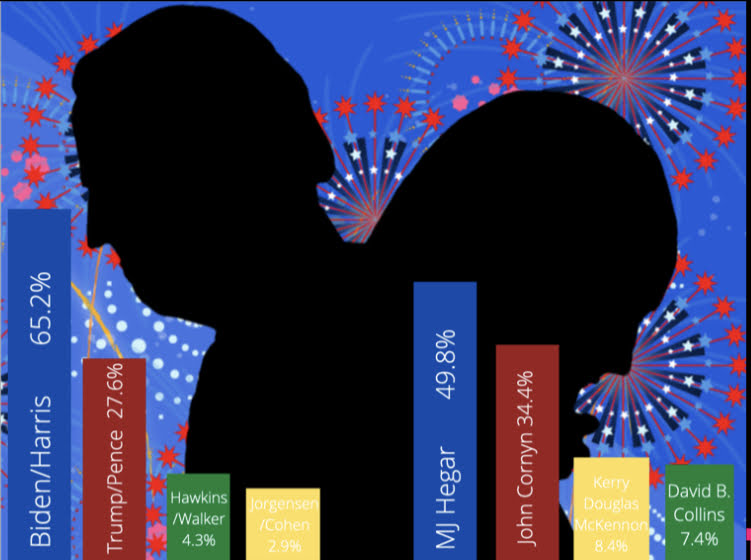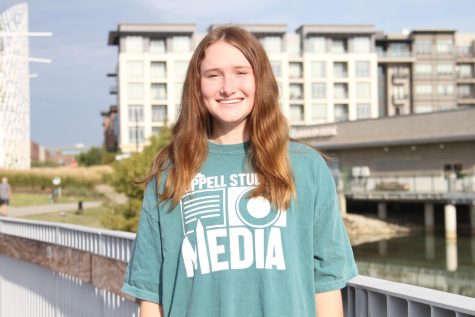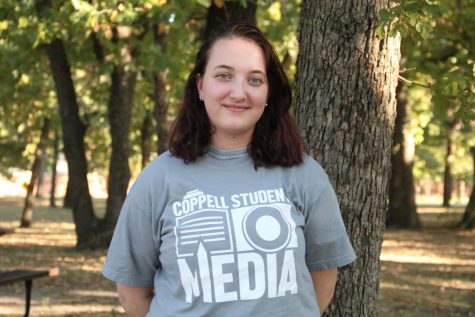CISD Mock Election gives students a voice
Coppell ISD held a mock election at all its campuses from Oct. 30 to Nov. 4, to help students experience what it’s like to vote. The winners for the presidential/vice presidential race were Democratic nominees Joe Biden and Kamala Harris with 2,163 out of the total 3,319 votes, and the winner for the Texas U.S. Senate race was Democrat Mary “MJ” Hegar with 1,652 out of the total 3,319 votes.
November 12, 2020
The Presidential Election is a momentous event every four years, but with the majority of Coppell High School students under the age of 18, students don’t have a voice in the process.
The implementation of a mock election encourages students to share their voice. CHS AP U.S. history teacher Diane De Waal organized this year’s CISD Mock Election.
History teachers across CISD encouraged their students to vote in the mock election as well as to engage in healthy conversations pertaining to the election.
In order to vote, students had to complete a Voter Registration Form. Across CISD, 4,544 registered to vote, with 3,319 casting their votes. The Mock Election resulted in a 65.2% victory for Biden/Harris with more than 2,000 votes.
“[Voting] made me feel like I could influence the general voice of Coppell,” CHS sophomore Faith Smith said. “[The results] will help people understand where Coppell youth stand on things. This is a step towards [people] realizing that change is on its way.”
By learning where students stand on political issues, teachers and administrators can better prepare for students’ questions and concerns after the election.
“It’s important for the kids to feel like their opinions are being heard, whether or not they can do anything about that politically at this point,” CHS U.S. and AP World History teacher Michael Erickson said. “It helps us as teachers know where the majority of our students are politically, and it opens up good discussions.”
Erickson has had conversations pertaining to the election in most of his classes over the past week. He encourages his students to converse using facts rather than feelings.
“What I’ve been talking to my students about a lot is the best way to approach politics,” Erickson said. “It’s important to have some knowledge of the issues, why you’re saying what you’re saying and doing your best to leave emotions out of [the conversation]. I wish the country as a whole could be less emotional when discussing politics and actually stand each other.”
Follow Torie Peck (@torielpeck) and @CHSCampusNews on Twitter.












Elizabeth Henry • Nov 13, 2020 at 9:28 am
Thank you so much for writing and publishing this story on the mock election. I do not believe my senior participated, but he turned 18 and voted in the actual election. I was hoping we would get to see how the student mock election played out. I think this is a great activity and it sounds like Mr. Erickson is doing a great job creating a constructive dialog with his students. I hope it encourages the students to become life-long voters once they turn 18.